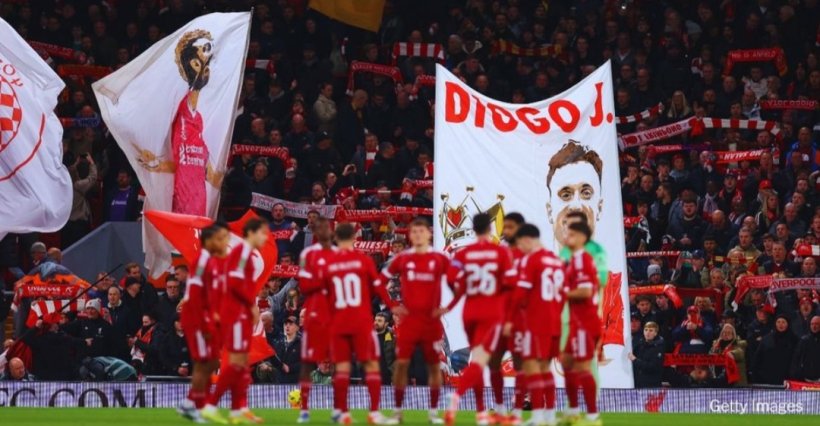
To What Extent Has Jota's Death Affected Liverpool's Performance?
Liverpool's performance this season has shown a degree of inconsistency, prompting analysts to look for reasons beyond tactical changes. In an in-depth analysis, writer Simon Hughes suggests that the human element and the emotional tragedy following the death of Portuguese forward Diogo Jota might be the 'unspoken psychological burden' affecting the team's performance. While the loss was primarily a profound human tragedy that shook the team, its sporting repercussions cannot be overlooked, as the club had to cope with a major emotional shock during a sensitive phase of rebuilding.
On a technical level, Jota represented significant value not just as a regular starter, but as a source of flexibility and depth that is not easily replaceable. Jota possessed a unique advantage in his finishing touch and accuracy in front of the goal, setting him apart from the team's other forwards. He was also capable of playing effectively in three different attacking positions. This sudden absence not only left a gap in the starting lineup but also reduced the tactical options available to the new coach, Arne Slot.
In addition to the tactical void, collective grief poses a complex psychological burden on an environment that demands absolute focus. Coping with the death of a beloved colleague, especially just before the start of a competitive season, drains part of the team's mental effort. This unspoken psychological burden can subtly affect mental cohesion and the ability to regain confidence during critical moments in matches.
Overall, the death of Jota cannot be considered the sole reason behind Liverpool's recent decline, which is influenced by multiple factors. However, it is fair to say that the team is struggling to overcome a human shock that affects their focus. This combination of technical and psychological pressures partially explains the inconsistency the team is currently experiencing.
On a technical level, Jota represented significant value not just as a regular starter, but as a source of flexibility and depth that is not easily replaceable. Jota possessed a unique advantage in his finishing touch and accuracy in front of the goal, setting him apart from the team's other forwards. He was also capable of playing effectively in three different attacking positions. This sudden absence not only left a gap in the starting lineup but also reduced the tactical options available to the new coach, Arne Slot.
In addition to the tactical void, collective grief poses a complex psychological burden on an environment that demands absolute focus. Coping with the death of a beloved colleague, especially just before the start of a competitive season, drains part of the team's mental effort. This unspoken psychological burden can subtly affect mental cohesion and the ability to regain confidence during critical moments in matches.
Overall, the death of Jota cannot be considered the sole reason behind Liverpool's recent decline, which is influenced by multiple factors. However, it is fair to say that the team is struggling to overcome a human shock that affects their focus. This combination of technical and psychological pressures partially explains the inconsistency the team is currently experiencing.










